A Measure of Justice at Last for Victor Jara
Fifty years after the famed Chilean folksinger was murdered by Pinochet’s military, his alleged executioner has finally been deported from the United States to Chile.
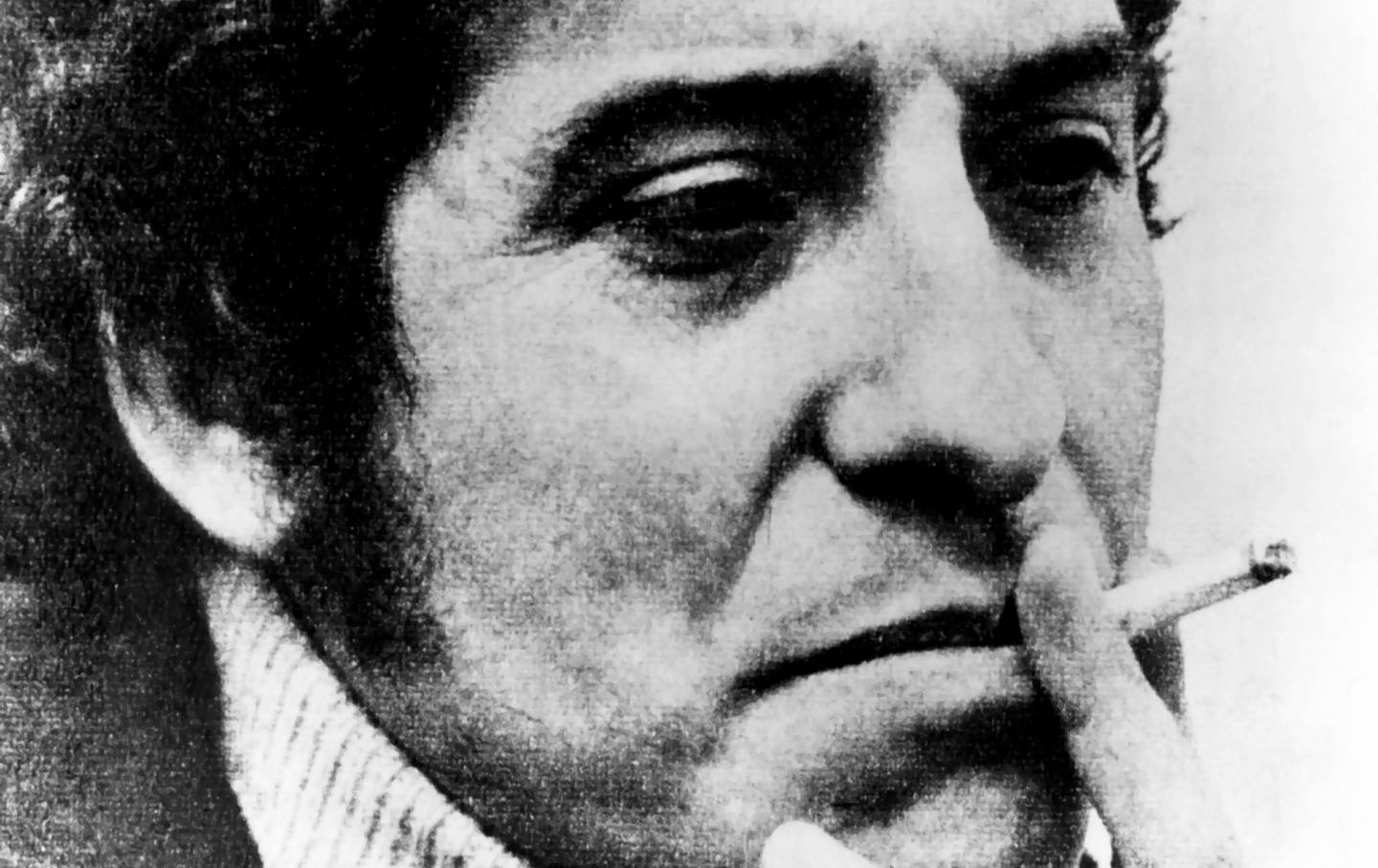
On December 1—just two days after the death of Henry Kissinger renewed international attention to the US role in the 1973 coup in Chile against the democratically elected government of Salvador Allende—an airliner transporting a former Chilean military officer took off from Florida and landed in Santiago. Police from INTERPOL/Chile boarded the plane and took custody of Pedro Barrientos, a 74-year-old ex-lieutenant in Gen. Augusto Pinochet’s army who stands accused of participating in the atrocities committed after the coup.
“Today, Pedro Barrientos was removed from the United States to Chile where he is wanted for the torture and extrajudicial killing of Chilean citizens, including Victor Jara in 1973,” tweeted US Ambassador to Chile Bernadette Meehan. “This case,” she stated, “serves as a reminder of the US Government’s commitment to pursuing human rights abusers who seek shelter from justice in the United States.”
Indeed, the deportation of Barrientos culminates a decades-long, bilateral effort to bring a notorious Pinochet-era human rights violator to justice. Fifty years after the torture and execution of Jara—Chile’s renowned troubadour, whom one commentator compared to a combination of Bob Dylan and Martin Luther King Jr.—Barrientos will now stand trial for one of the most emblematic crimes committed by the Chilean military in the aftermath of the September 11, 1973, US-backed coup. His arrest and repatriation mark a historic milestone in Chile’s ongoing quest for accountability for the atrocious violations of human rights that defined the Pinochet dictatorship.
Victor Jara was detained the day after the coup, along with dozens of colleagues and students, while attempting to defend from military attack the campus of the Santiago University of Technology where he worked. Along with thousands of other supporters of Salvador Allende’s government, he was taken to the Chile Stadium—a sports arena that the military transformed into a concentration camp—where he was tortured, beaten, and executed on September 15. Several soldiers would later testify that Lt. Barrientos shot Jara, and proudly showed off the gun he had used. To disguise evidence of his summary execution, Jara’s captors riddled his body with machine gun fire. An autopsy reported 44 bullet wounds.
At the time of his death, Jara was an international cultural icon and leading advocate for social justice. His songs such as “Te Recuerdo Amanda,” “El Derecho de Vivir en Paz,” and “Plegaria a un Labrador,” continue to be sung around the world today. “My guitar is not for the rich, no, nothing like that,” he sang in “Manifiesto,” a song which became an anthem for the Allende government. “My song is of the ladder we are building to reach the stars.” In a tribute to Jara during a concert on the 40th anniversary of the coup in Santiago, Bruce Springsteen covered “Manifiesto” and said that the Chilean folk singer “continues to be a great inspiration.”
Just as his songs captured the aspirations of Chileans for a better society, Jara’s brutal murder became a symbol of Pinochet’s repression—and the pursuit of justice for the victims of the dictatorship. Joan Jara, Victor’s widow, became a leader in that quest that has endured for five long decades. “From the memory of Victor’s body in the morgue I was able to find a voice, to accuse, to accuse, to accuse, to give testimony,” she recalled in one poignant interview. “I had to take on where they cut Victor off,” she stated in another. “I had to go on running from where he was stopped. I had to just go on, and try, in a way, not to take his place, [but] to take my place for what he was fighting for.”
In 1978, Joan Jara courageously initiated legal proceedings in Chile to identify her husband’s killers. But, as with all human rights cases during the Pinochet dictatorship, her initial quest for accountability was met with obstruction, denial, and disregard from the military authorities and their subservient courts. Even after Pinochet was forced to step down from power in 1990, it took another 22 long years for the Chilean courts to identify and indict eight military officers and soldiers for the murder of Victor Jara—among them Pedro Barrientos.
By that time, however, Barrientos had been quietly living in the United States for over two decades; he had even managed to become a US citizen, falsely claiming on his residency and naturalization papers that he had never served in the Chilean military and had never been involved in human rights abuses. At the request of a Chilean judge, the FBI tracked Barrientos down in 2012 at his home in Deltona, Fla. A Chilean television program on the Jara case that year publicized Barrientos’s presence in the United States. But Chile’s extradition petitions stalled because of the high standard of evidence required to extradite a US citizen.
Two unique legal proceedings eventually led to Barrientos’s being deported. In 2013, the San Francisco–based Center for Justice and Accountability (CJA) filed a civil suit in Florida on behalf of the Jara family, drawing on a novel law called the Torture Victims Protection Act. Conceived by international human rights lawyer Almudena Bernabeu, then-director of CJA’s Transitional Justice Program, the suit assembled substantial evidence against Barrientos. Multiple witnesses challenged his denials that he was ever at the Chile Stadium in the days following the coup. At the civil trial held in Orlando, Fla., in June 2016, one solder testified that Barrientos “used to show his pistol and say, ‘I killed Victor Jara with this.’”
After a lengthy deliberation, the Florida jury found Barrientos liable for the murder of Jara and ordered him to pay the family $28 million in compensatory and punitive damages. That moral victory—Barrientos had no resources to pay the civil damages—in a US court of law inspired a Netflix documentary on the case, Massacre at the Stadium: A Victor Jara Story. “Today, there is some justice for Victor’s death and for the other families in Chile who have sought truth,” Joan Jara said on the courthouse steps after the verdict was handed down.
The compelling evidence of Barrientos’s criminal service in Pinochet’s military presented during the civil suit accelerated a far more significant legal effort by the US government: to strip Barrientos of his US citizenship and deport him back to Chile. After US authorities located Barrientos in the United States, a little-known Homeland Security agency, the Human Rights Violators & War Crimes Center (HRVWCC), opened an investigation into his case. A bureaucratic descendent of the State Department’s Nazi-hunting Office of Special Investigations, the HRVWCC is an amalgam of investigative, law enforcement, and legal bureaus operating in the Department of Homeland Security, ICE, the FBI, and the Justice Department, according to its mission statement, dedicated to “identifying, investigating, prosecuting, and removing human rights violators and war criminals found within the jurisdiction of the United States.” Originally known as the Human Rights Violators Unit, during the last 20 years the HRVWCC has been involved in the arrest of over 480 perpetrators of human rights crimes who, like Barrientos, managed to find safe haven in the United States.
Drawing on testimony and evidence presented during the civil suit, on July 18, 2022, the Department of Justice immigration litigation office filed a “complaint to revoke naturalization of Pedro Pablo Barrientos.” The 48-page court filing charged that Barrientos was the highest-ranking officer of a military unit based at the Chile Stadium between September 12 and September 17, 1973; that he “participated and assisted in the operation of the detention center”; that soldiers “under the Defendant’s authority…carried the corpses of detainees from the basement of the Chile Stadium to load into trucks outside the stadium”; and that “on multiple occasions between 1978 and 1980, all within the confines of a Chilean Army officer’s club, Defendant acknowledged he had shot Victor Jara in the head.” Despite these atrocities and his spending 16 years in the Chilean military, on his US immigration and naturalization forms Barrientos had denied having any prior military service, according to the Justice Department complaint. “Thus, Defendant’s citizenship was illegally procured and was obtained through Defendant’s willful misrepresentation and concealment of material facts.”
Popular
“swipe left below to view more authors”Swipe →After a year of legal wrangling, US District Judge Roy Dalton Jr. voided Barrientos’s US citizenship, ruling that he had obtained it under false pretenses. “Now it has surfaced that Barrientos’s answers were false,” Judge Dalton submitted in his order.
Stripped of his citizenship, Barrientos then became subject to arrest and deportation as an “undesirable” illegal immigrant. On October 5, US Immigration and Customs Enforcement fugitive operations agents, supported by local Florida sheriff, police and highway patrol officers, dramatically intercepted Barrientos’s car during a traffic stop and took him into federal custody. According to a statement released by the ICE Tampa office, “Barrientos will now have to answer the charges he’s faced with in Chile for his involvement in torture and extrajudicial killing of Chilean citizens.”
Indeed, Barrientos will now be formally prosecuted, judged, and sentenced in Chile for atrocities committed during the first days of the military dictatorship more than a half-century ago. With pro-Pinochet sentiment on the rise in Chile, the case carries a timely historical, legal, and political significance. Joan Jara, who died at age 96—just 18 days before Barrientos was deported back to Chile—predicted the importance of justice for her husband, and all other victims of Pinochet’s atrocities after Barrientos was found culpable in Florida: “I hope,” she said, “the verdict continues the healing.”
More from Peter Kornbluh
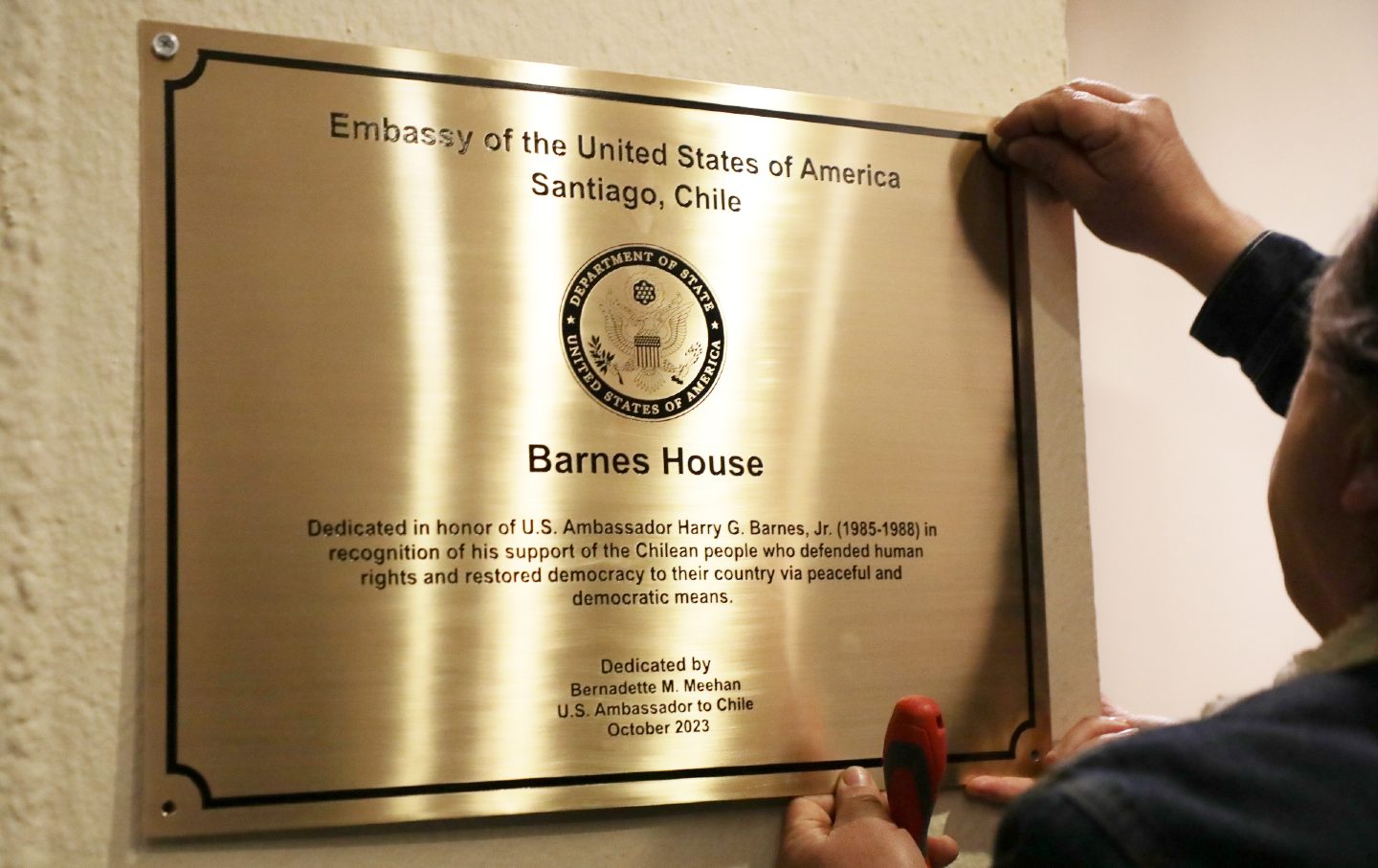
The American Ambassador Who Helped Stop a Coup in Chile The American Ambassador Who Helped Stop a Coup in Chile
Everyone knows how Nixon and Kissinger paved Pinochet’s path to power. The story of Harry Barnes, who played a crucial role in the Chilean dictator’s exit, is much less well known...
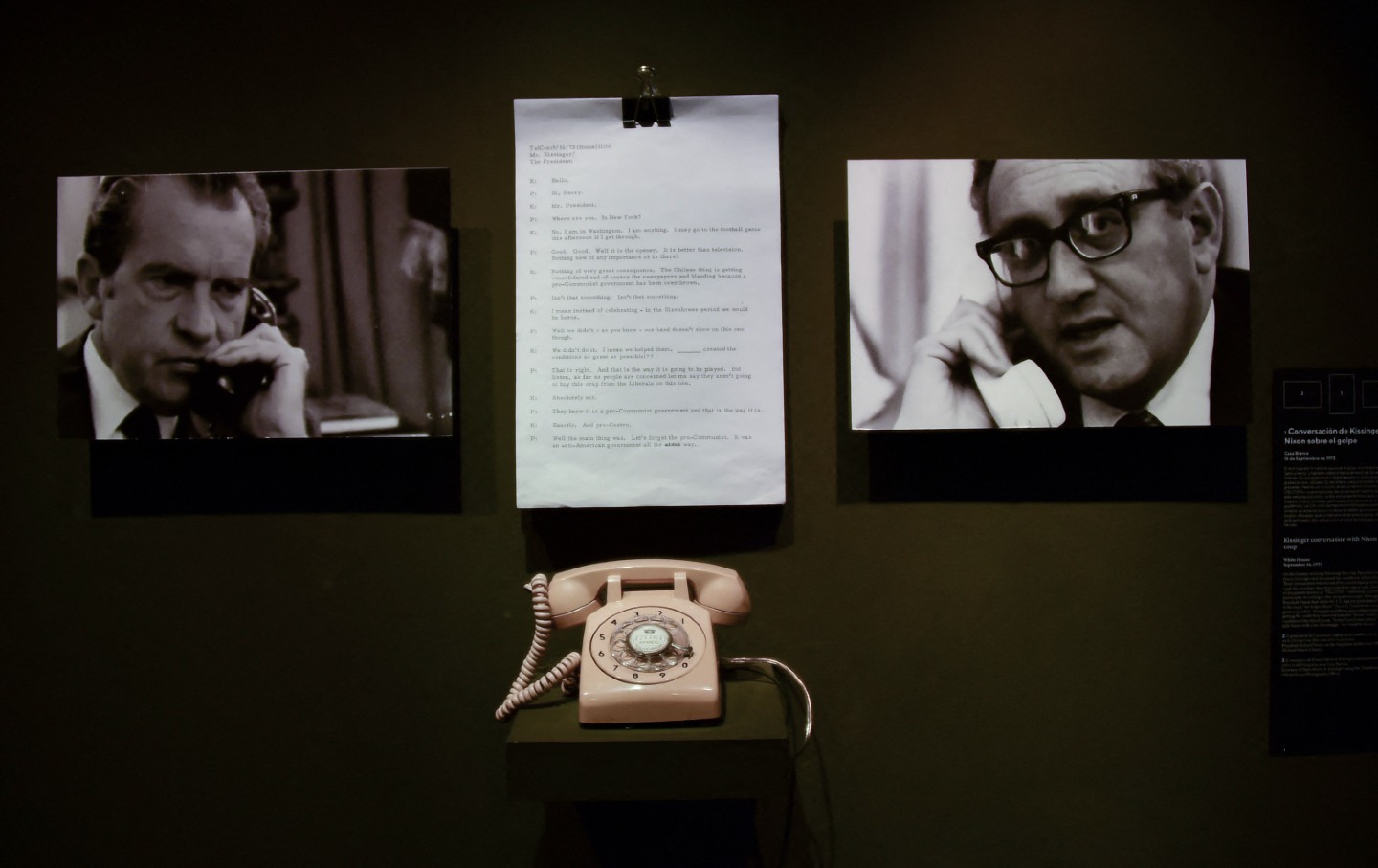
Chile: The Secrets the US Government Continues to Hide Chile: The Secrets the US Government Continues to Hide
Fifty years after the military coup that brought down Salvador Allende and installed the Pinochet dicatorship, there are still top secret documents on the US role that must be dec...
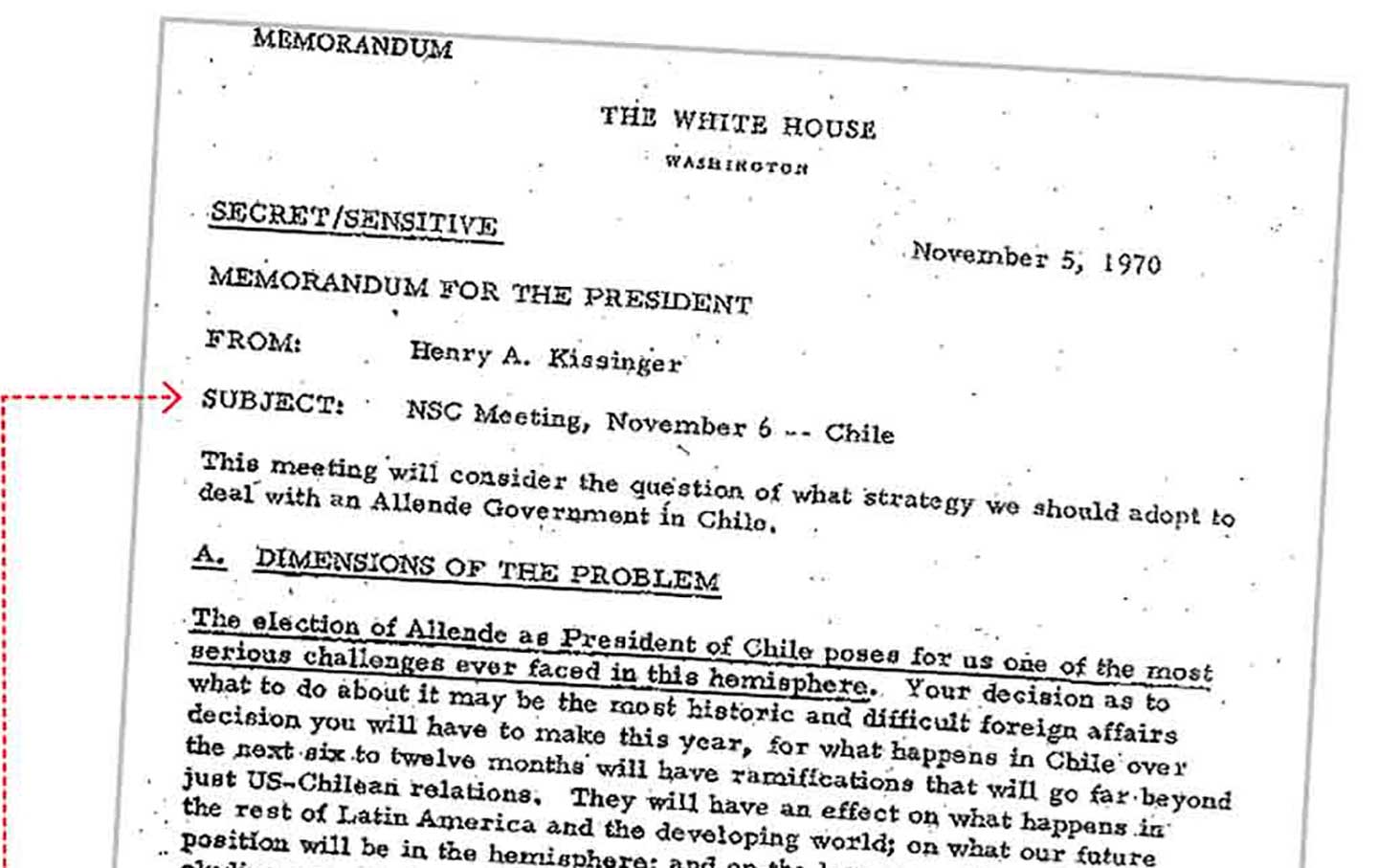
Kissinger’s Bloody Paper Trail in Chile Kissinger’s Bloody Paper Trail in Chile
The secret memo in which he plotted the murder of Chilean democracy.
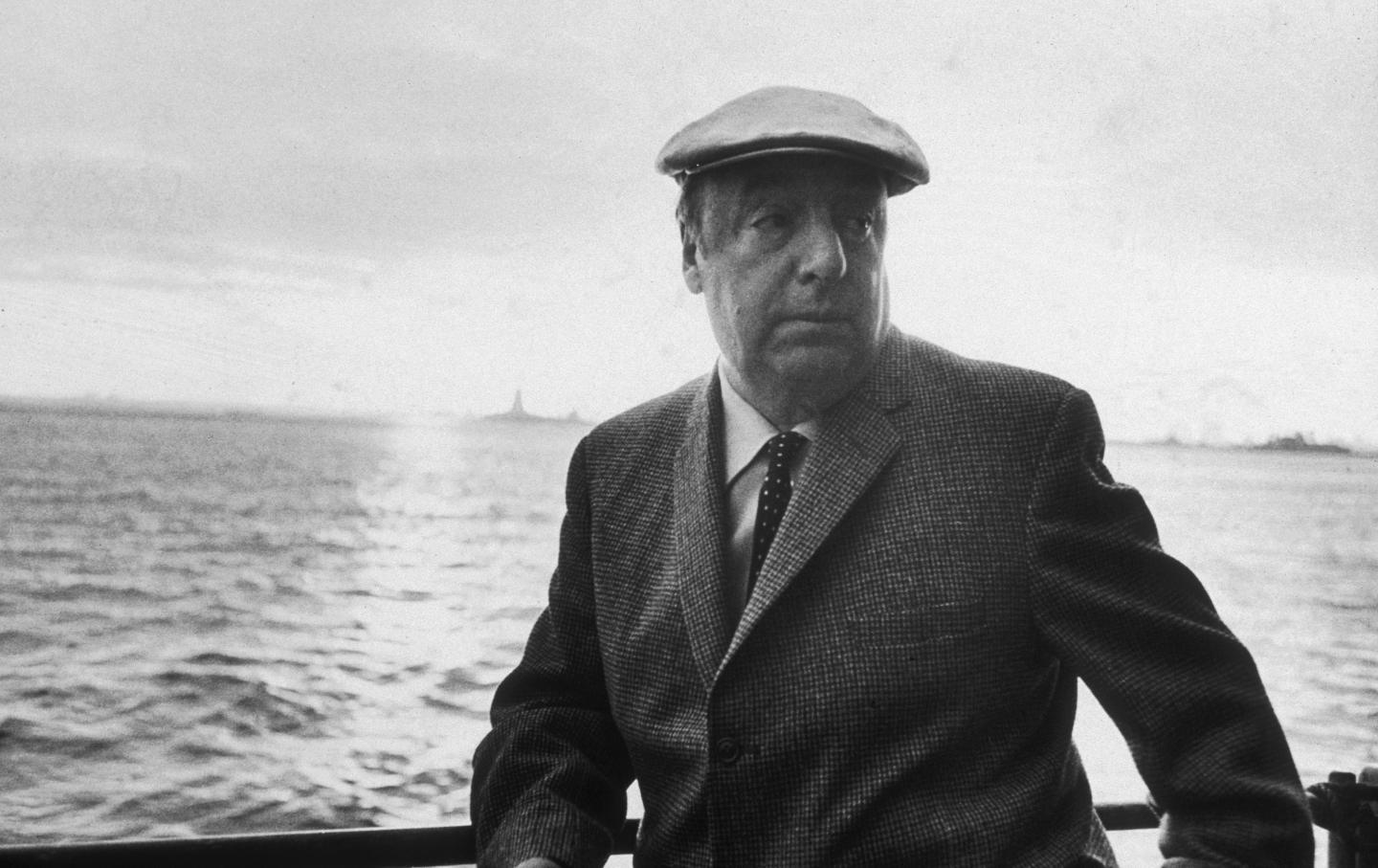
The Possible Murder of Pablo Neruda The Possible Murder of Pablo Neruda
Questions have surrounded the legendary Chilean poet’s death for years, and a new inquiry suggests that he might have been poisoned.
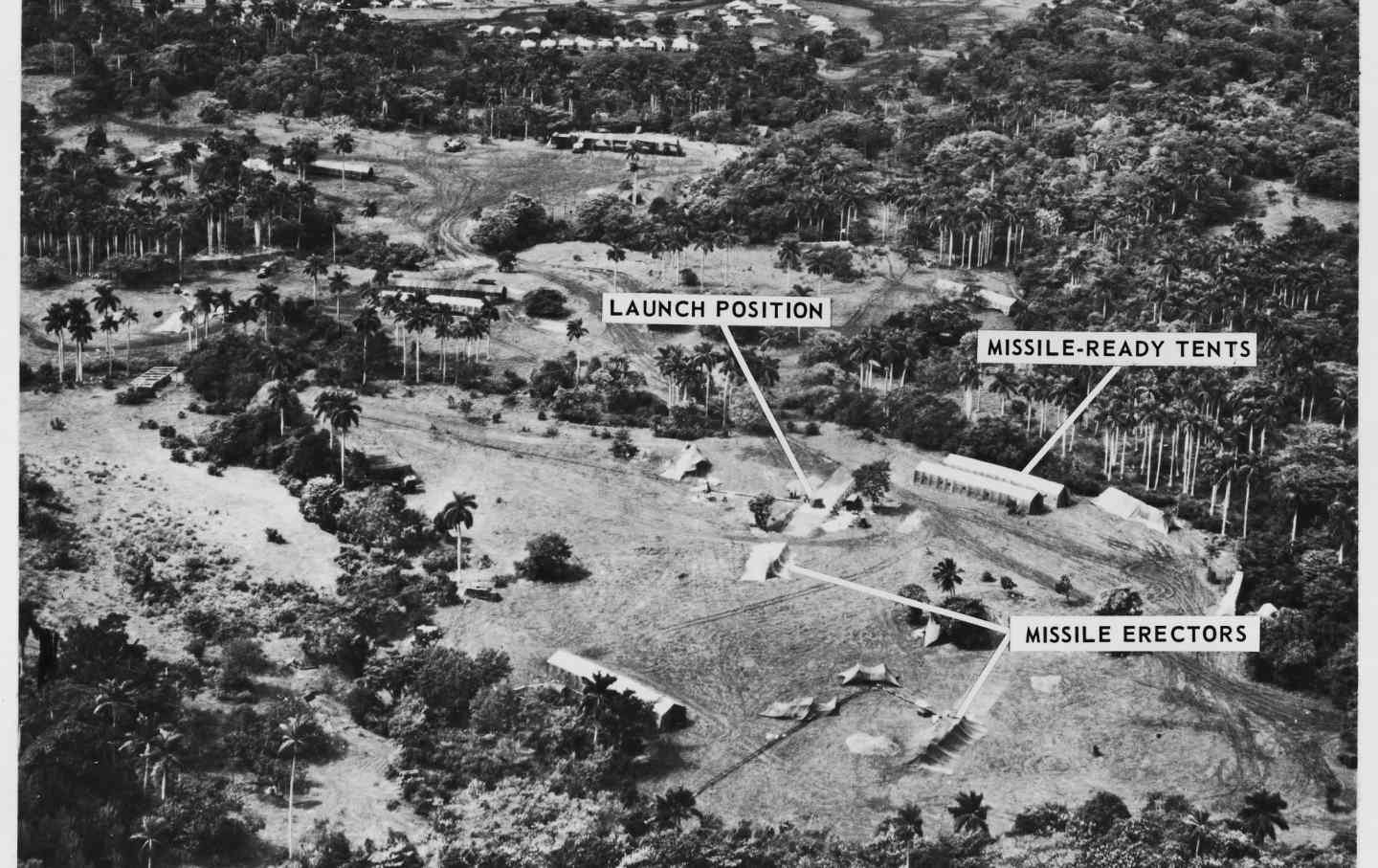
The Cuban Missile Crisis Cover-Up The Cuban Missile Crisis Cover-Up
How JFK and Robert Kennedy hid the quid pro quo that saved the world from nuclear war.
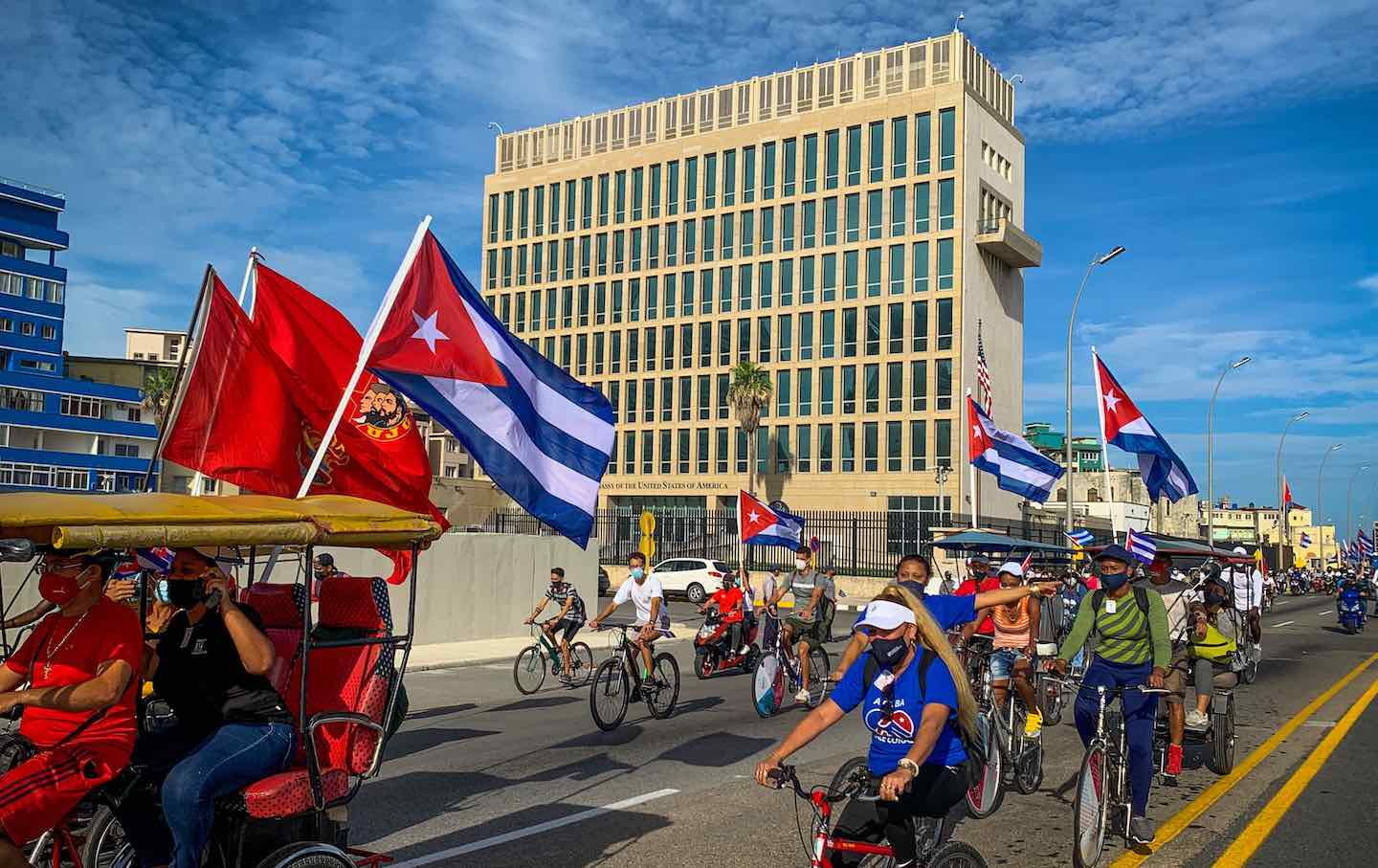
Biden Is Finally Moving Toward Engagement With Cuba Biden Is Finally Moving Toward Engagement With Cuba
As the island struggles to emerge from a dire economic crisis, the White House is acknowledging that the policies it inherited could lead to disaster.


